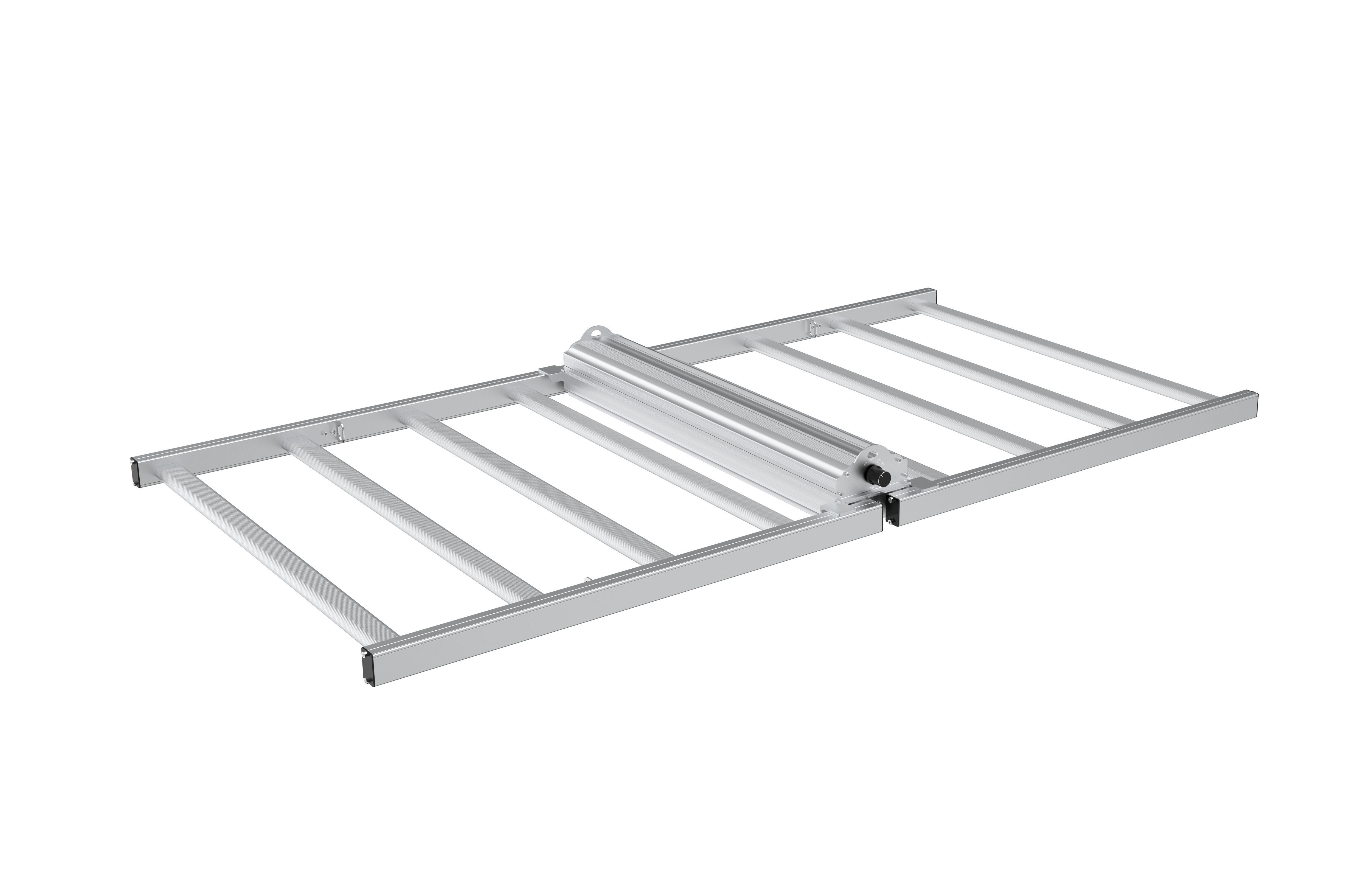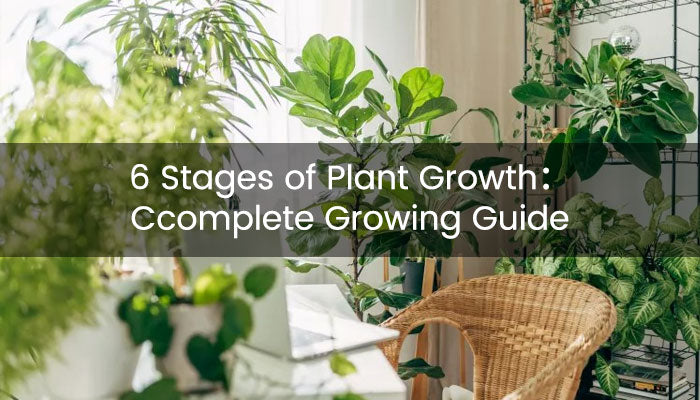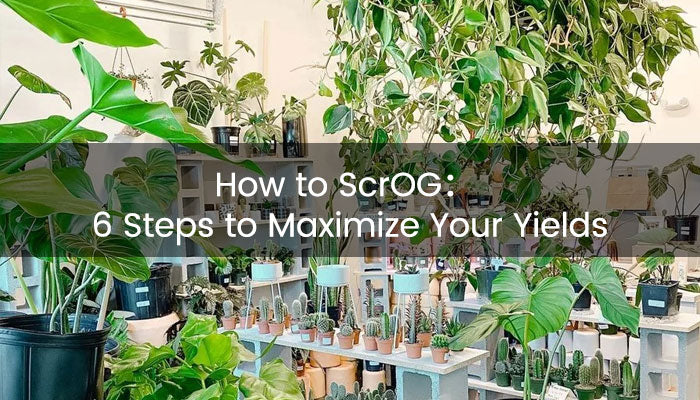
Does Green Herb Expire? How to Prolong its Shelf Life
Yes, green herbs do expire, though not in the same way that food spoils. Over time, its aroma and potency will degrade. While expired green herbs are still safe to use, they may become dry and lose their potency, flavor, and smell. In some cases, mold may develop, and moldy green herbs should not be consumed.
Green herb has been gaining popularity among indoor growers using grow lights and consumers due to its unique aroma and effects. This increased interest has led to some common questions: Does green herb expire? Can green herbs go bad?
While these questions might seem simple, they require a deeper understanding of proper green herb storage techniques and considerations.
In this article, we'll uncover the secrets behind the green herb shelf life, discuss the longevity of different green herb products, and explore the best ways to keep plant fresh. By the end of this article, I hope you'll be better equipped to enjoy green herbs at their peak potency and aroma.
Main Content:
- 1. Does Green Herb Expire?
- 2. The Best Ways to Keep Plant Fresh
- 3. 5 Signs That Your Green Herb May Have Expired
- 4. Are There Health Risks in Using Expired Green Herbs?
- 5. 4 Uses for Old Green Herb
- 6. Conclusion
- 7. FAQs about Does Green Herbs Expire
Does Green Herb Expire?
Yes, green herbs do expire, but it doesn't "spoil" like perishable food does. Over time, medical or recreational green herbs will gradually lose their potency, flavor, and aroma as their chemical compounds degrade. However, if you notice white or gray mold, the green herb has gone moldy and is no longer safe to use.
Perishable foods like milk typically use a "Use By" date, indicating that after this date, the food may spoil and no longer be safe to consume. On the other hand, green herb shelf life is more akin to a "Best Before" date, meaning that even after this date, it may still be safe to use, though the quality may have diminished.
Does Green Herb Lose Potency When It's Old?
Green herb's potency degrades over time due to the breakdown of its key compounds, especially when exposed to unfavorable conditions. The psychoactive component is less potent and produces a different effect.
This process accelerates when green herb is exposed to light, heat, or air. Similarly, terpenes, which give green herbs their distinctive aroma and flavor, can evaporate or break down, leading to a diminished sensory experience.
Moisture levels also play a crucial role in the quality of green herbs. In a humid environment, green herbs are susceptible to mold or mildew, while overly dry can cause them to become brittle and harsh to consume.
Therefore, proper green herb storage, in a cool, dark place with controlled humidity, is essential to preserving its potency and flavor.
Shelf Life for Different Green Herb Products
Different types of green herb products have varying shelf lives for their ingredients and processing methods. Here is an overview of the shelf life of common green herb products.
green herb Flower
How long does green herb flower last? If stored properly, green herb flowers can last from 6 months to 18 months. However, its potency, flavor, and aroma will decrease over time, so it’s best used within 6 months. Before use, check if the flower is still fresh by looking for signs of mold and abnormal odors.
Concentrates (green herb Oil)
Does green herb oil expire? Yes, green herb oil can expire. Its potency and flavor may degrade over time, but if stored in a cool, dark place away from direct sunlight, it can last for 6-12 months at room temperature. Storing it in the refrigerator can extend its shelf life to about 1-2 years.
Topicals
green herb topicals can last 1 to 2 years if unopened, but their potency may gradually decrease once opened. If stored for an extended period, check its smell and texture for any changes before use, and do a test on a small area of skin.
green herb butter
green herb butter does expire and has a short shelf life. When stored at room temperature, it'll go bad in 1-2 weeks. Keeping green herb butter in the refrigerator (at 4°C or below) can extend its shelf life to 4-6 weeks. If frozen, green herb butter can typically last for 6 months to 1 year.
Proper storage methods, such as using airtight containers, and keeping them cool, dark, and dry, can help maximize the shelf life of these products.
The Best Ways to Keep Green Herb Fresh
Different green herb products have varying storage requirements, but they all share one common vulnerability: exposure to light, heat, and moisture, which can accelerate the breakdown of plant compounds.
Storing green herb Flower
After harvesting green herb, green herb flowers should be stored in airtight glass jars to prevent air exposure and avoid using plastic bags, as static can damage the trichomes.
Keep the jars in a cool, dry, and dark place, away from light, heat, and humidity. Using indoor grow tent kits can help maintain a relative humidity of 55-65%, preventing the flower from drying out or developing mold.
Storing Concentrates
green herb concentrates are best stored in silicone or glass containers to prevent sticking and contamination. Store concentrates in a cool, dark place with a temperature not exceeding 21°C (70°F) to minimize chemical degradation.
For long-term storage, consider refrigerating or freezing the concentrates, provided they are properly sealed to prevent moisture from seeping in.
Storing green herb Edibles
Edible green herb products and green herb-infused candies should be sealed and stored in a refrigerated or frozen environment to avoid the impact of moisture and air, thereby preserving freshness and potency.
Always check and follow the expiration date on the packaging, and inspect for any off odors or signs of spoilage before consuming.
Homemade green herb edibles are more prone to spoilage, so it’s advisable to consume them as soon as possible to ensure the best effect.
Storing Topicals
Topicals and green herb-infused products should be kept tightly sealed and stored in a cool place, away from light and air exposure. A nightstand or closet is ideal, where heat and humidity are always avoided.
Once opened, use it up as soon as possible, as exposure to air can accelerate degradation. Always check the smell and texture before use to ensure they are safe for your skin.
Storing Tinctures
Tinctures should be stored in dark glass bottles to block out light and prevent oxidation, keeping the cap tightly sealed to reduce air exposure.
Store tinctures in a cool, dry place, avoiding high temperatures and direct sunlight to prevent degradation of active compounds.
Avoid touching the dropper with your hands during use, and keep the dropper and cap clean as bacteria on your hands can accelerate the tincture's degradation.
By following these guidelines, you can maximize the shelf life of your green herb products and enjoy more enjoyable effects.
5 Signs That Your Green Herb May Have Expired
Knowing whether green herbs has expired can help for a safe and enjoyable experience. Here are five signs that your green herb may have expired.
Loss of Aroma: Fresh green herb has a strong aroma, thanks to the terpenes it contains. If your green herb smells faint, stale, or has an off-putting odor (like mold or a musty grass scent), it may have expired and lost its potency.
Color Change: Fresh green herbs are usually green, sometimes with orange or purple hues. If the green herb has turned brown, yellowish-brown, or gray, this could be a sign of chemical degradation.
Dry or Brittle Texture: If the green herb feels dry or crumbly to the touch and easily breaks apart between your fingers, it has likely lost its moisture, indicating a decline in quality.
Presence of Mold or Mildew: If you notice black, gray, or white spots of mold, this indicates that the green herb has become moldy, rendering it unsafe to use.
These signs suggest that the green herb may no longer be suitable for use or has lost its original potency and flavor. Checking for these signs before using green herbs ensures your safety and helps you enjoy a more pleasant experience.
Are There Health Risks in Using Expired Green Herbs?
Using expired green herbs can pose health risks and result in a diminished experience. Over time, terpenes in green herbs degrade, leading to reduced potency and altered flavor.
Expired green herbs often fail to deliver the desired effects, and their taste may become bland, stale, or even bitter, negatively impacting the overall experience.
Moreover, expired green herbs can present health risks, especially if improperly stored and moldy. Inhaling mold spores can cause respiratory issues or allergic reactions.
Using expired green herbs might also lead to adverse psychological effects, such as drowsiness or anxiety, as well as other discomforts like headaches or nausea.
Therefore, it's essential to use fresh green herbs and store them properly to avoid these potential risks.
4 Uses for Old Green Herb
Old green herb, while less potent, still has various uses. First, inspect its condition for mold, off odors, or other signs of spoilage. If the green herb is moldy or spoiled, discard it immediately to avoid health risks.
Cooking
To use the old green herbs in cooking, first, grind them and then decarboxylate them. Spread the ground green herb evenly on a baking sheet, preheat the oven to around 115°C (240°F), and bake for 30-40 minutes to activate the plant compounds.
After decarboxylation, you can make green herb oil or butter by mixing the decarboxylated green herb with a carrier oil (like olive oil) or butter, heating it for 2-3 hours, and then straining it. This oil or butter can be used in cooking or baking.
Topicals
For making a green herb topical remedy, start by decarboxylating the green herb as described above. Then, infuse it into coconut oil or olive oil by simmering it on low heat for 2-3 hours to extract the active compounds, and strain out the plant material using cheesecloth.
Next, blend the infused oil with beeswax or an emulsifier (such as shea butter or cocoa butter), heat and stir until the desired consistency is achieved.
Add essential oils if desired for fragrance and added benefits. Pour the mixture into containers to cool and store in a cool, dry place. This will create a topical salve or lotion useful for relieving pain and inflammation.
Reviving Old green herb
To revive the taste of the old green herb, start by rehydrating it. If the green herb is too dry, you can place a small piece of fresh citrus peel or a slightly damp cloth in an airtight container with the green herb for several hours.
While rehydrating can enhance the flavor and smoking experience, it won't restore the plant compounds and other active compounds that may have degraded over time.
Composting
Composting old green herbs is an eco-friendly way to dispose of them. First, ensure the green herb is free of mold and shred or grind it to speed up decomposition.
Mix the green herb with other compost materials like straw, leaves, and kitchen scraps, keeping the compost at a moderate moisture level and turning it regularly to promote airflow.
The composting process can take several months; once the materials have fully decomposed into a dark, soil-like substance, it can be used in gardens or plant beds to improve soil quality.
By using these methods, you can repurpose old green herbs for various uses, from consumption, flavor restoration, and topical applications, to soil enrichment.
Conclusion
In conclusion, while does expire over time, understanding how to properly store and care for it can significantly extend its usability. It’s crucial to keep it in an airtight container, away from light, heat, and humidity.
As long as green herbs are not moldy, they can still be used for cooking, making topical remedies, or even as compost. With so many benefits, you can enjoy cultivating green herbs now with full-spectrum LED grow lights and savoring your green herb at its peak freshness.
FAQs about Does Green Herbs Expire
1. Does green herb Get Old?
Green herbs can get old, and their quality can deteriorate over time, so it's best consumed within 6-12 months. Generally, the potency of green herbs can decrease by 10-20% per year if not stored properly. Proper storage in a cool, dark, and dry place can help minimize these effects.
2. Can green herbs Go Bad?
Yes, green herbs can go bad over time, especially when exposed to light, heat, and moisture. The active compound in green herbs, degrades after about 6 months, leading to a notable loss of potency. After 1 year, green herb can lose most of its potency, flavor, and aroma, resulting in a stale green herb taste and smell.
3. What Does a Bad green Herbs Look Like?
Bad green herbs usually exhibit discoloration, such as dull brown or yellowish-brown hues. It often has a musty or stale odor and feels excessively dry and brittle. If you notice white or grayish moldy patches or covers, it indicates that the green herb may be moldy and should not be used.
Featured Products
Blog Posts
Contact Us with Any Idea!
- Choosing a selection results in a full page refresh.
!



















